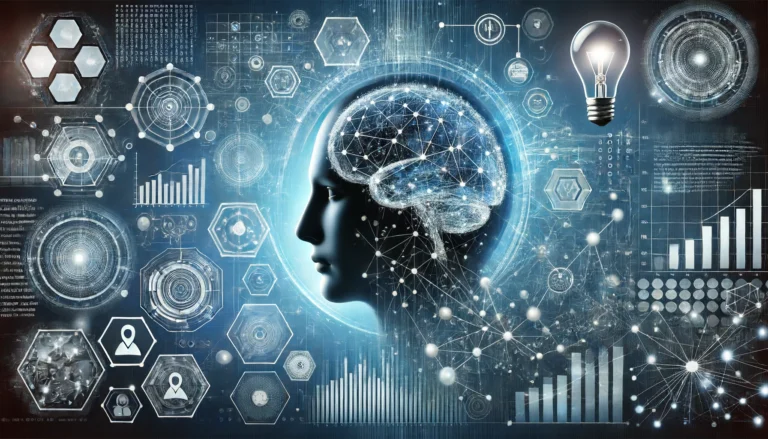In the digital era, Artificial Intelligence (AI) has seamlessly integrated itself into various aspects of our lives. From smart homes to autonomous vehicles, AI technologies are reshaping the way we interact with the world. Yet, beyond these tangible applications, AI holds the potential to alter our decision-making process fundamentally. By guiding us towards decisions based on empirical data rather than emotions, AI can serve as an invaluable mentor, steering us towards objectivity and rationality.
Traditional decision-making models, particularly those involving human judgement, are susceptible to cognitive biases and emotional influences. This is not to imply that emotions are inherently bad, but they can skew our perspective, particularly when making complex or high-stakes decisions. AI, immune to such emotional influences, presents a compelling alternative. It can process vast amounts of data in seconds, identify patterns and trends, and offer evidence-based recommendations devoid of human biases.
AI technologies such as machine learning algorithms and neural networks are capable of learning from past experiences (in their case, data). They can analyze patterns and trends from historical data, make predictions, and provide informed suggestions. This ability to learn and adapt makes AI a powerful tool for data-driven decision-making.
To further illustrate this concept, let’s consider an example in the realm of personal finance. Suppose you’re contemplating investing in the stock market. The decision involves several variables – market trends, company performance, global economic indicators, etc. It’s an emotionally charged decision, where fear of loss or the greed for gain could cloud your judgement.
Enter AI. An AI-based investment advisor, trained on years of financial data, can provide objective guidance. It would analyze historical market trends, company performance data, and economic indicators to suggest the most probable profitable investments. Its recommendations are based solely on data, ignoring the fear and greed that often plague human investors.
In another scenario, imagine you’re a small business owner trying to decide on the optimal pricing strategy for your products. Emotional factors, such as fear of losing customers or desire to outperform competitors, might sway your decision. However, an AI-based pricing tool could analyze historical sales data, customer behavior, competitor pricing, and market conditions to recommend the optimal price. The emotionless, data-based guidance of AI helps you to make the best decision for your business’s profitability and sustainability.
AI’s ability to leverage vast amounts of data and provide evidence-based recommendations makes it a formidable mentor in our decision-making processes. By taking emotions out of the equation, AI allows us to focus on what the data is telling us, leading to more rational and potentially successful decisions.
However, it’s crucial to remember that AI is a tool, not a replacement for human judgement. While AI can provide data-driven insights, it lacks the human ability to understand the nuances of emotions, ethics, and context. Therefore, the most effective decision-making strategy often lies in combining AI’s analytical prowess with our own emotional intelligence and judgement.
Consider another scenario – a decision that many of us face at some point in our lives: the prospect of changing jobs. It can be an emotionally charged decision, with various factors at play. You may be dissatisfied with your current job, enticed by a new opportunity, or simply looking for a change. However, emotional biases like fear of the unknown, attachment to colleagues, or animosity towards a boss can cloud your judgement.
AI can offer a more objective perspective. Let’s imagine you have access to an AI-powered career advisor. You could feed it various data points such as your current job satisfaction level, salary, growth opportunities, work-life balance, commute time, and the same parameters for the new job. The AI could also consider external data such as industry trends, job market statistics, and company reviews.
This AI mentor could analyze the data, weigh the pros and cons based on your personal preferences and the external factors, and provide a recommendation. For instance, if the data shows that the new job offers better growth opportunities and work-life balance, despite a slightly lower salary, the AI might suggest that the switch could be beneficial in the long run. If the AI has been trained on a dataset of similar job transitions, it could even predict the likelihood of you being happier after the change.
The AI’s recommendation would be devoid of emotional biases, focusing instead on the tangible aspects of your decision. It doesn’t mean it will always make the decision for you, but it can offer a data-driven perspective that can help balance your emotional biases and guide you towards a more informed decision.
Following this use case, we can conclude that, as we navigate the complex landscape of the 21st century, AI can serve as an invaluable mentor, guiding us towards data-driven, objective decisions. By doing so, it empowers us to make more informed and rational choices, whether in personal finance, business strategy, or countless other arenas of life. As we continue to advance and refine AI technologies, the potential for their application in our decision-making processes only grows.










